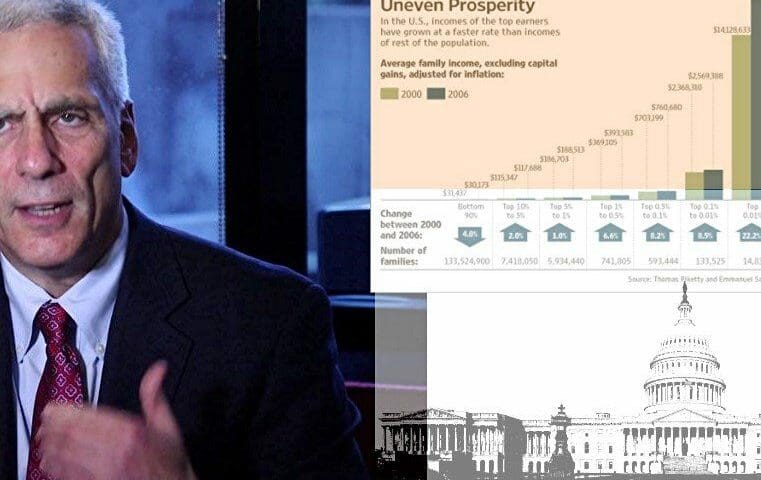Several years ago I produced a documentary film about young men who had been in gangs and in prison, men who had had their lives turned around when they were accepted into building trades unions. They all came from tough and economically deprived backgrounds. In addition to their social environments, what was similar about all of the young men who had gotten in serious trouble was the absence of a father in their lives.
Most of them explained to me that while they respected their mothers’ feelings while in the home, when outside of the house they gravitated towards other male figures. Arturo Peña, who was part of a gang in Los Angeles’ Ramona Gardens housing project, reflected on his experience as a young man. “We didn’t have fathers growing up so we looked up to these older gang members who dominated and controlled the streets.”
The lucky ones from so-called “broken families” —
» Read more about: Fathers and Sons and Daughters: Father’s Day at the Wilshire Grand »


Former Governor Arnold Schwarzenegger once termed it the “stuff [I] used to blow up in the movies.” But America’s vital infrastructure—highways, railways, bridges and thruways—now face a doom worse than the Terminator ever imagined. That’s the destruction from the rust, decay and corrosion of trillions of dollars worth of elderly tracks, canals, ports, structures and causeways that carry our trade and traffic all over the United States.
Sixty-one thousand bridges, located mostly in local jurisdictions, are potentially dangerous. That U.S. rail systems are about $60 billion behind on maintenance (as of five years ago) was tragically illustrated by the recent fatal Pennsylvania Amtrak disaster, blamed on the delayed installation of a new control system. Last month’s burst oil pipeline in Santa Barbara County also underscored the deterioration of even private infrastructure. Both tragedies demonstrated that continued neglect comes with a fast rising cost in both money and lives.


When Jared Bernstein recently sat down with Capital & Main, he had just been chosen as chair of the National Employment Law Project’s board of directors, while continuing his roles as a senior fellow at the Center on Budget and Policy Priorities, and as a frequent commentator on MSNBC and CNBC. Picked in 2009 by Joe Biden to be the Vice President’s top economic advisor, Bernstein had already distinguished himself as a passionate critic of inequality during his long tenure at the Economic Policy Institute, one of the country’s leading think tanks. His views on economic issues were well to the left of Obama’s and the rest of the President’s team, ensuring that progressive ideas would get a hearing inside the White House as the administration wrestled with the worst downturn since the Great Depression.
While Obama and his advisors succeeded in reversing the Great Recession’s massive job losses and saving the bacon of the financial industry,
» Read more about: Watch Now: Jared Bernstein on Inequality & Lip-Syncing Republicans »


In what was widely seen as a stunning rebuke to President Obama’s efforts to speed through congressional approval of the administration’s Trans-Pacific Partnership (TPP) free trade agreement, the House of Representatives last Friday rejected a key measure needed to “fast track” the controversial pact.
The defeat came in a vote on one of two related bills that both needed to pass for Fast Track to move forward — a reauthorization of Trade Adjustment Assistance (TAA) funds, a program that pays for job retraining for those thrown out of work because of free trade deals like TPP.
House Republicans have vowed to get another floor vote on TAA as soon as early this week to allow the White House a second chance at fast track.
The reauthorization failed by a lopsided 126-302 — a margin attributed to the efforts of a broad coalition of labor unions,
» Read more about: The Trade Agreement California Dodged – For Now »


The problems are well documented. Northrop Grumman botched the upgrade to New York City’s 911 systems while billing the city $300,000 to $430,000 annually for each of their 137 consultants. A $132 million dollar contract to upgrade phones and Internet services for municipal agencies in Orange County, California is already $13 million over budget while municipal employees report repeated outages and failed solutions from the contractor, Xerox. And who can forget all those failed Obamacare exchange websites brought to us by mega-information technology contractors such as CGI and Oracle?
For too long, local and state governments have turned over control of their critical digital infrastructure to companies claiming they could do the work cheaper and faster than public employees. But after the last few years of failures, cost overruns, and plain old shoddy work, local leaders are finally realizing that in this digital age,
» Read more about: Insourcing Taxpayer Savings and Efficiency »


It’s no secret that former U.S. Labor Secretary Robert Reich has some misgivings about the direction of the American economy. But the prolific writer, radio commentator and longtime University of California, Berkeley professor isn’t thrilled about how we are educating our kids, either.
As part of a new project with the activist group MoveOn.org, Reich recently released a video that described our education system as “squashing passion for learning, eroding the love of teaching and grinding up generations of young people.” The critique is accompanied by a set of proposals to reinvent American education – one of 10 planks in a broader agenda titled “10 Ideas to Save the Economy.”
Reich has addressed the nation’s education challenges in his books, including 2011’s Aftershock: The Next Economy and America’s Future, as well as in his 2013 film Inequality for All (available on NetFlix,


A recent L.A. Times story profiled a fast-food worker who, according to reporter Don Lee, would lose eligibility for Medicaid if his wages were raised to $15. His wage gains could be “wiped out” by the higher health care costs he’d end up paying. Lee’s portrayal was inaccurate and misleading.
The story centers on 53-year-old Douglas Hunter, a Chicago McDonald’s cook and a leader in the Fight for $15, a national movement of fast-food workers who are pushing for $15 in hourly wages and the right to form a union without employer retaliation.
Hunter is currently enrolled in CountyCare, a Medicaid-managed care plan that pays for his health care, including more than $700 per month in medications and supplies he needs to manage his diabetes, cholesterol and blood pressure. Contrary to Lee’s assertion, Hunter would still qualify for Medicaid based on his income if his wage were raised to $15.
» Read more about: L.A. Times Calls Out Fight for $15 Guy, Gets It All Wrong »


The newest front in the battle over the retirement security of California’s public employees opened June 4 with the release of the language for a proposed ballot initiative that would rewrite the state’s constitution to virtually outlaw traditional defined-benefit pension plans for future state and municipal workers.
The measure, dubbed “The Voter Empowerment Act of 2016,” would effectively shift all new public employees from the various defined-benefit plans currently in place to 401(k) plans, beginning in 2019. It would then lock those plans in place by adding the burden of direct voter approval on government employers who want to continue offering traditional pensions after 2019.
Also see in this series:
The security offered by defined-benefit retirement plans has been typically used by government employers to compete with the private sector in recruiting quality candidates for public workforces.
» Read more about: New Retirement Ballot Proposal: The Language of Cuts »


No city offers Californians a better example of voter-approved pension-cutting than San Jose. In 2012, then-mayor Chuck Reed, who is the co-author of the new “Voter Empowerment Act of 2016,” persuaded citizens to pass Measure B. Some provisions of the San Jose law were later thrown out by a Santa Clara County Superior Court, but an uneasy atmosphere lingers over this city whose public employees were vilified by Measure B’s supporters. Capital & Main recently discussed the fallout from Measure B and previous budget cuts, with a city firefighter who requested that only his first name be used.
Capital & Main: What do you see as the biggest problem facing the San Jose Fire Department today?
Matt: Don’t get me wrong, I love the department I work for . . . Unfortunately with the budget cuts that our department [has] faced [for] over a decade,
» Read more about: San Jose's Pension-Cutting Legacy: A Firefighter's Story »


On April 10, the libertarian Reason Foundation held its strategic “pension summit” in Sacramento’s Sterling Hotel to reduce government workers’ retirements. A proposed 2016 state ballot measure to cut public employee pensions by shifting them from traditional, defined-benefit pensions to more volatile 401(k)-type retirements took center stage. At that point, the measure was months away from being submitted to the state Attorney General’s office for a title and approval of its wording.
The measure is co-authored by Chuck Reed, the former Democratic mayor of San Jose who successfully pushed a 2012 city pension-cutting ballot initiative, Measure B. Reed headlined the summit, which was open to the media only on an off-the-record basis.
“The political support is the relatively easy part,” Reed told Capital & Main after the summit concluded. “As long as you are solving a problem the public is willing to support it in the form of pension reform.”
But not everyone shares Reed’s optimism.
» Read more about: In Their Own Words: Pension Disrupters Speak »